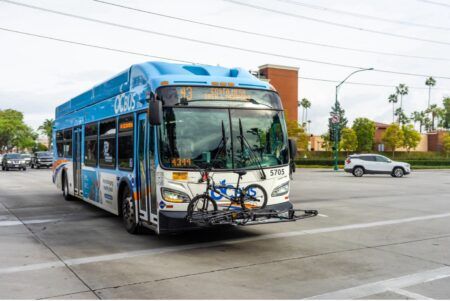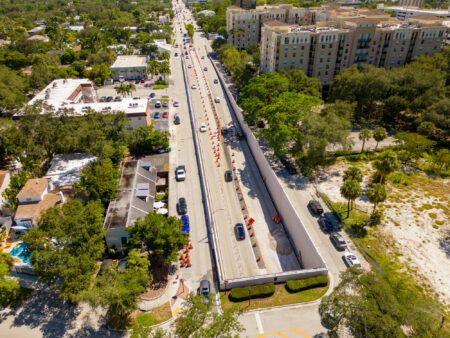A new report from Australia’s independent non-partisan think tank the Grattan Institute provides a uniquely detailed look at road congestion in the country’s two major cities, and concludes that congestion charges should be introduced in Sydney and Melbourne.
The Grattan report warns that with their populations growing strongly, both cities could face traffic gridlock in future unless decisive action is taken to manage congestion. The findings are based on an examination of 3.5 million Google Maps trip-time estimates across more than 350 routes over six months of this year. In the middle and outer suburbs of Sydney and Melbourne, drivers have a reasonably smooth journey most of the time, but commutes to the CBDs (central business districts) can take more than twice as long as the same trips off-peak. The report recommends congestion charges in the most gridlocked central areas of each city.
People who pay the charge would get a quicker and more reliable trip, because there would be fewer cars on the road at peak times. Those who can travel outside of the peaks would not have to pay, because there would be no charge when the roads are not congested. To make it clear that the new charges are to help manage traffic flows rather than boost revenue, the money raised should be used to fund a discount on vehicle registration fees and improvements to the train, tram, ferry and bus networks. Melbourne’s CBD parking levy should be doubled, to match Sydney’s and to further discourage commuters from driving to work.
The report says public transport fares in both cities should be cut during off-peak periods, to encourage people to shift their travel to times. Rather than build new roads, it is often more effective, and always cheaper, to invest in smaller-scale engineering and technology improvements, such as traffic-light coordination, smarter intersection design, variable speed limits, and better road surfaces and gradients.
“Don’t listen to the politicians who tell you big new roads will be ‘congestion busters’,” said Grattan Institute transport program director, Marion Terrill. “You can’t build your way out of congestion. We need more sophisticated solutions. Some of the great cities of the world have successful congestion pricing schemes, including London, Stockholm and Singapore.
“For Sydney and Melbourne, congestion pricing would deliver city-wide benefits: not only reducing the amount of time we spend stuck in traffic, but also funding better public transport and a cut to car registration fees.”




